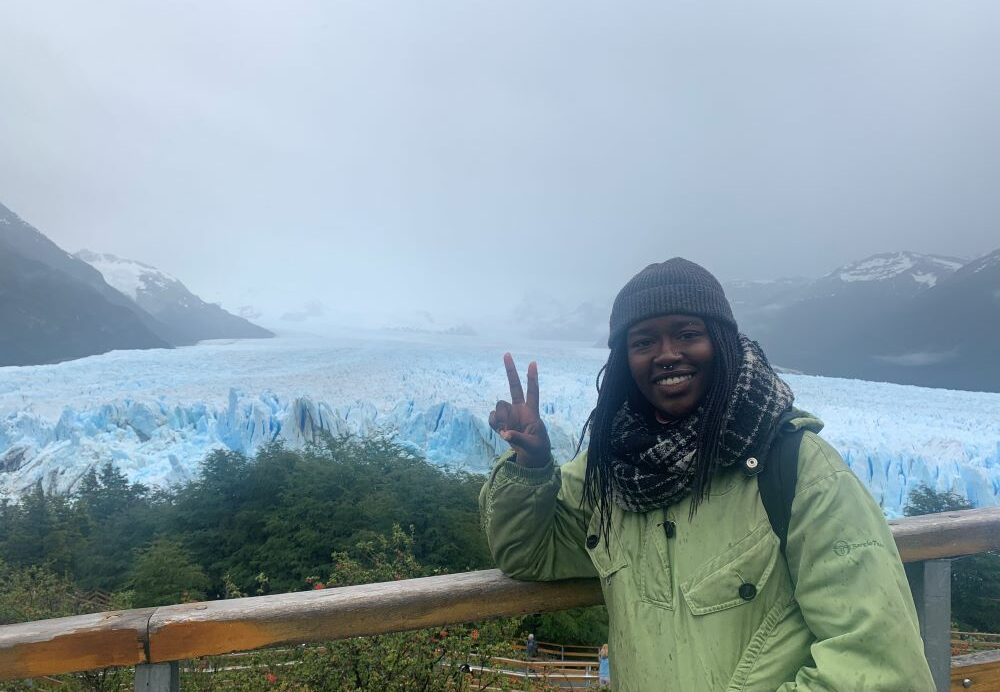
In ‘Travelling While Black’ Nanjala Nyabola (2020) recounts how she navigates the global travel industry as a Black African woman, highlighting the system’s hostility, its inherent whiteness and persistent Eurocentrism. Her passport brings issues at visa control in Global North contexts, where she must self-present as a ‘good’ immigrant as a condition of entry (p.3), and labelling systems differentiate ‘migrants’ and ‘refugees’ from ‘expats’, with racialized undertones (p.63).
In a similar vein, Johny Pitts (2019) refers to himself as the ‘rarest of creatures: a Black backpacker’, as he embarks on his journey around Europe in search of what ‘Afropean’ means to those across the continent.
When applied in a University context, their work poses the question of how Black British and British Asian students experience their cross-cultural placement or year abroad (YA)? How does travelling while Black, Asian or as part of global majority British populations impact on their experience during this important year in the degree course?
Existing studies examining Black experiences of the YA from the US context have shown that race might impact on intercultural interaction and language acquisition (Behrnd & Porzelt, 2012; Llanes, 2011). In addition, student safety and the microaggressions that students might face during the YA were also raised as important issues (Goldoni, 2017; Parker & Rouxeville, 1995).

Building on this scholarship, these are issues that University of Bath (UoB) languages and politics graduate, Keji Kamoju, and Penny Miles, Lecturer in Latin American Politics, sought to explore further through a UoB-funded study. Students who identified as Black British (3 female, 1 male), Biracial British (1 female) and British Asian (1 female, 1 male), from 4 different UK Universities, took part in structured peer interviews to explore their experiences of the YA and overseas placements.
The ‘Contesting Whiteness in the Year Abroad’ project examined: a) what institutional support students received prior to and during their YA; b) positive and negative student experiences during the YA; c) potential impact of identities during the YA (e.g. on language acquisition); and d) what advice they would give to both students studying or working abroad in the future and to universities to support students.
Institutional Support (or rather, a lack of)
Unfortunately, the sample concurred that University support both prior to and during the YA, was lacking. Race was not part of preparatory talks delivered to students, nor did it feature in data collected by placement staff prior to students leaving to work and study overseas. For all intents and purposes, the default position spoke to a hegemony of whiteness, whereby whiteness was invisible (Leonardo, 2002) in its normalising of ‘the white European experience’ as the default experience, yet visible, in its erasure of racialized minority groups.
To address the lack of University coverage of racialized experiences during the YA, the majority of participants did their own research prior to leaving for their YA. As one student reported, “I never really met any other Black women who did their year abroad in Spain so I just went straight to videos and blog posts and looking at the pros and cons of their experiences and that kind of thing and trying to get a better experience of how I would be treated if I was there.” Another said, “I joined a facebook group called Indians in Barcelona.”
Perhaps more concerning was that students didn’t feel that University staff were equipped to deal with any cases of racism or harassment that might arise during the YA. Therefore, had any incident occurred, it was unlikely that these students would have asked for institutional support.
This is an area that the project has sought to address and YA/placement students at the University of Bath are now encouraged to use the Support & Report tool if any instance of racialized (or other) harassment or discrimination takes place during the year abroad. Britt Sawyerr has reiterated that staff in this team are equipped with the relevant training to deal with such scenarios.
The Positive
That said, for the most part, all students reported how rewarding their year abroad had been despite their initial fears and misgivings about ‘travelling while Black’ or British Asian. Students preferred to study and work in cities over and above more rural areas. This meant a larger potential diaspora with which to interact whilst abroad, and to feel safer in not being the only non-white European in the geographical vicinity.

What the data showed was that how student identities intersected could at times be a positive element in terms of inclusion within these spaces. For example, students reported that their ‘British’ identities were a favourable signifier for greater integration whilst abroad. Being Black British or British Asian could also help with language acquisition, both through engaging with the local diaspora or being incorporated into networks of other diasporas, such as the Latin American community in Spain.
The Less Positive
Yet, conversely, where gender and racial identities collided, female participants reported either feeling hypersexualised or rendered invisible. One participant said “People in Paris kept calling me Colombian and being weird and suggestive”. They also noted how Black men were perceived as a threat in European contexts.
Accessing placements was considered more complex for those who didn’t have names more associated with Anglo Saxon heritage, which caused additional stress. One student said, “Everyone, everyone, else had everything sorted like months before me, not that I hadn't been trying…the stress comes from not knowing what's going to happen”. This was considered to be related to employers’ preference for hiring local candidates in some European countries.
Some participants were a visible other during work placements, as one student reported, “There were no Black people at either company, I think I was the darkest one that at both of those companies.” As per the institutional context, a sense of distance and non-inclusion was evident in these cases, “I did feel quite ignored, often. I did feel quite out of place often. And I shared this with my peers, and they couldn't quite grasp what I was referring to.”
Again, the pervasiveness of whiteness and its associated privilege (Bhopal, 2018) also indicated that sharing experience across racial divides was met with a lack of understanding. In addition, being a lone black professional in an all-white space led to discomfort and discrimination. As such, awareness raising alongside practical, policy-oriented outcomes are key to start providing students with greater support, moving away from the current ‘invisible’ status. Britt Sawyerr has been working with Bath’s Human Resources team to address organisational-based harassment whilst on the YA.
In general terms, student experiences seemed to align with the following conclusion, in that it was a complex process, but that overall, it was a positive one, “I think there was a lot of scepticism around whether I'd be able to take care of myself and whether I'd be okay being in a foreign environment but looking back on it, it was probably the best thing that could have happened to me.”
Next steps & project outcomes:
- Awareness raising for University staff of the importance of moving beyond assumptions of the white experience as a universal experience - project findings presented to UoB Placement Officers and languages staff, and at the GW4 Languages Symposium reaching 80+ staff across Bath, Bristol, Exeter & Cardiff universities.
- In PoLIS, a session dedicated to discussing race is now included as part of YA talks.
- Podcasts are being developed as resources for students (and staff) to consult prior to travelling abroad.
- A short brief is being prepared on for UoB Placement Officers detailing project outcomes and UoB responses to help strengthen University support in this area.
- Working with inclusion and placement officers at UoB to create spaces for students of colour to share their specific year abroad experiences across 4th year and 1st/2nd year cohorts. It is hoped to expand this to other student cohorts, such as the LGBTQIANB+ cohort, in the longer term.
- Working towards implementing safety plans for students travelling abroad where concerns for safety are present.
- Academic dissemination – conference presentations & journal article submissions.
If you have queries about the project as a student or staff member, please contact Dr Penny Miles – pm684@bath.ac.uk
Respond
